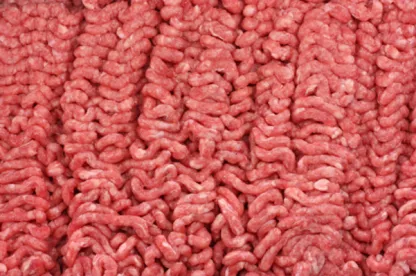-
In the Spring of 2012, ABC News aired a series of reports on “Lean Finely Textured Beef” (LFTB), referring to the product as “pink slime.” The media coverage of LFTB and resulting consumer concern led many fast-food chains to discontinue using beef that contains the additive. In addition, over 220,000 people signed an online petition calling on the USDA to stop using LFTB in the federal school lunch program. Many beef producers and politicians in states with significant beef industries called ABC’s coverage of LFTB a smear campaign.
-
Beef Products Inc. (BPI), the Dakota Dunes, South Dakota-based company that manufactures LFTB, is now suing ABC News and reporter Jim Avila for $1.9 billion in a defamation suit related to its series of Spring 2012 reports that referred to LFTB as “pink slime”. Central to the case is an allegation of “product disparagement” – which in South Dakota makes BPI eligible for treble damages. More specifically, in its complaint, BPI alleges that ABC’s disparaging series of news reports calling LFTB “pink slime” and implying that LFTB is not actually beef, is not nutritious, and is not safe cost the company $1.9 billion. Last week, BPI and ABC News sparred over the nutritional value of LFTB with BPI’s expert – Mindy M. Brashears, a Texas Tech University professor of food microbiology and food safety and a beef industry expert – contending that LFTB is beef, is not a filler, is not like gelatin, is safe to eat, and is not pink slime. ABC News sought to undermine BPI’s expert testimony by raising questions about the protein quality in LFTB. To support its position, ABC News presented lab reports to the jury indicating that, in some cases, protein levels in LFTB were half those in ground beef.
-
This week, the jury is slated to hear depositions from reporter Jim Avila, former World News host Diane Sawyer, other ABC employees and some of the sources of the disparaging news reports. This case brings into sharp focus the fine line between news reporting and disinformation. The outcome of this case could potentially serve as a bellwether concerning how news networks report on food and food additives (and a variety of other consumer products) going forward.
Lean Finely Textured Beef Litigation – BPI’s Defamation Lawsuit Against ABC News Heats Up
Monday, June 12, 2017
Current Public Notices
Published: 3 September, 2025
Published: 28 August, 2025
Published: 25 August, 2025
Published: 25 August, 2025
Published: 25 August, 2025
Published: 25 August, 2025
Published: 22 August, 2025
Published: 20 August, 2025
Published: 20 August, 2025
Published: 18 August, 2025
Published: 18 August, 2025
Published: 14 August, 2025
Published: 11 August, 2025
Published: 8 August, 2025
Published: 26 June, 2025



 />i
/>i
